This article is part of a web original series
Marco Cian (Hyogo)
So… here we are. At last we’ve reached the Avengers: Endgame of our journey. I’ve been putting it off for long enough. It’s time to jump in and finish this. Three times Hideaki Anno tried to give Evangelion the ending he felt it deserved. And while the first two attempts failed for their own respective reasons, with his third and final try he has finally achieved satisfaction. Anno has said that Thrice Upon a Time will be his last entry into the world of Evangelion. He’s now said everything he has to say with Eva, so it’s time to say goodbye.
As for me, the Rebuild films were actually my first ever exposure to Evangelion. I first became a proper weeb during the 2000s, when Funimation was taking over as the main purveyor of anime in America, and so when they released the first Rebuild film I was eager to check out this famous franchise everyone was so bananas about. Despite my friends all insisting I needed to watch the original show before checking out the movies, I couldn’t understand why I had to check out that old shit, especially when the animation was so ugly and lifeless compared to the Rebuilds.
Yes, I know, I was an uncultured little swine back then, who only watched the og NGE after finishing the second Rebuild film and finding no more Eva to watch, and who spent most of the early episodes of my Eva viewing bitterly complaining about how boring and ugly the show looked in comparison to the movies. I know I had no taste back then. I am aware of this. What I wasn’t aware of though, until I rewatched the Rebuilds for the first time in mumblemumble years, was just how uncultured and undiscerning my teenage self was, especially in thinking that the first two Rebuild films were superior to their source material.
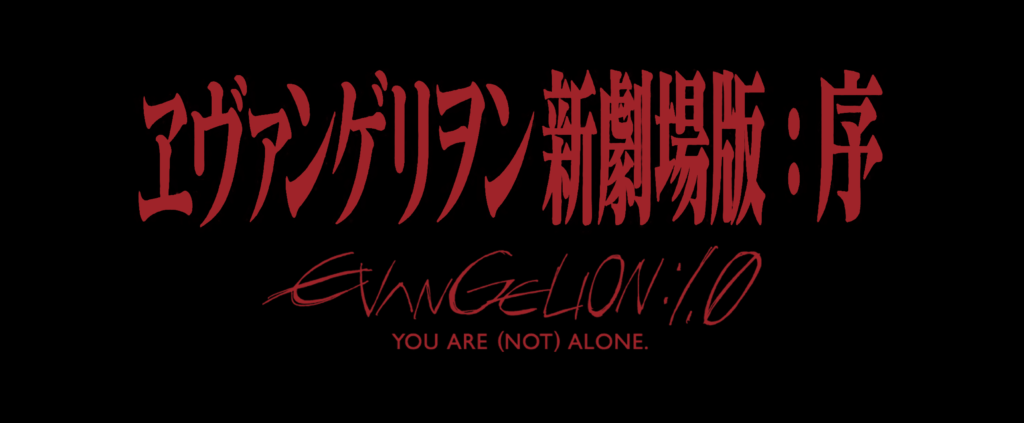
Evangelion: 1.0 You Are (Not) Alone
For one thing, I didn’t get the titles. No, seriously, back when I watched the Blu Rays I’d so lovingly purchased at Anime Milwaukee, I didn’t think the titles meant much beyond sounding cool and having parentheses. Parentheses make titles cool, right? Now as an adult though I can clearly see that the titles of the first three Rebuild films are all centered around the main thematic question of each entry. For this one, that question concerns isolation and loneliness, and whether Shinji is destined to forever be alone, or if he can make human connections and come out of his shell.
This also establishes what the Rebuild films (initially) were all about, and why I felt secure in starting with them while skipping NGE; being a “greatest hits” showcase of the events of that series, with even more beautiful visuals than anything we could have seen in 90s tv. I am honestly willing to forgive my teenage self for thinking the show looked bad in comparison to the films, because it really feels like that’s what Anno and co. deliberately set out to do. When iconic scenes from NGE are replicated here, there’s an extra level of care and polish to things, just to make the visuals even more impressive than they were in the show. Given how, as I’ve mentioned previously, Anno is willing to use the Eva IP to give up-and-coming animators something to show off their skills with, it really feels like You Are (Not) Alone (and the next two Rebuilds) are more concerned with painting pretty pictures than telling a story.
That may sound like there is no plot to the Rebuilds, but there is. And indeed, Alone is perhaps the most faithful adaptation of the original show, being a clear condensation of NGE’s first six episodes. My first thought when realizing this upon my rewatch was “Damn. I wish they’d do something like that with Nadia. Those first six episodes were the best part of the whole show.” My second thought was “Ohhhh, yeah. This makes sense. Fighting Ramiel with Rei was a major turning point in Shinji’s character arc, so I can see why they’d make that the climax of this film.” And then, my third thought was “Wait. Wait. Wait! Noooo!”
While Alone takes the time to add that extra polish and detail to its visuals, in its attempts to streamline the narrative of the show, it ends up losing a lot of the polish and details that made NGE’s narrative so compelling. One crucial detail is Shinji himself. Given how faithful they are to the events of the show, you’d expect Shinji to also be the same as he was then, right? Well, he is and he isn’t. Similar to how Picard in his titular tv show is a mixture of his characterization from the TNG tv and film series, so too is Shinji a mixture of his NGE and EoE incarnations. I have of course made no bones about my dislike of Shinji in EoE, and while I don’t hate Shinji here as much as I did there, I did find it much more difficult to sympathize with him in Alone.
Shinji in NGE started out as depressed and moody as any teenage boy with abandonment issues would be if they were thrust into a combat situation with no training. He was self-conscious and had low self-esteem, but he had enough altruism and decency to always hunker down and do the right thing no matter how difficult it was, and through the love shown by everyone, he was slowly able to come out of his shell, heal from his trauma, and grow into a well-adjusted adult.
When the iconic scenes from the show show up in Alone though, Shinj’s behavior is always slightly different, just a little less heroic and a little more Byronic. And these little details add up, especially when Alone adds extra scenes of him being sullen and self-loathing. He never becomes outright catatonic like he did in EoE, but he spends so much time lost in his head, feeling sorry for himself, that the film hardly has any time to devote to any other character moments. Even when Shinji isn’t on-screen, a lot of time is spent with Misato and Ritsuko discussing his self-esteem issues, just to make extra sure you get that he doesn’t like himself. And my problem with this isn’t so much that I find it wimpy or unmanly, but that by hammering us over the head with how much Shinji hates himself, the movie doesn’t leave room for him to grow and change.
We see that Misato takes Shinji in, and we see that Toji and Kensuke become pals with Shinji, but we don’t really see any consequences to this. Apart from these initial establishing scenes and a brief recording Shinji listens to before the climax, we don’t see relationships develop between Shinji and Misato, Toji, and Kensuke. And this is baffling to me because that was such an integral part of Shinji’s development in the first NGE arc. For Alone to remove that while focusing on the cool robot fights makes it seem like Anno and co. forgot just what it was that made Evangelion special.
I think the thinking was that, because this is a movie, they wanted Rei’s sacrifice in the Ramiel fight to be the first act of kindness that kick-starts Shinji’s development. Instead of all the little moments of kindness and connection that Shinji experiences in NGE, they may have wanted one big moment to serve as the emotional climax. But without all these little moments of kindness, Misato isn’t Shinji’s guardian, she’s just some woman he lives with. Toji and Kensuke aren’t two friends we care about. They’re just two random assholes who know Shinji. And Shinji’s development isn’t a slow, gradual progress, but a sudden shift that feels unearned.
The thing is, this might have worked if Shinji’s characterization were closer to his NGE counterpart. But Shinji in the Rebuilds is so pathetic, so sullen, so full of mental anguish that a single act of kindness is simply not enough to rectify that. Taken on its own, I didn’t find the scene where Shinji teaches Rei how to smile heartwarming or endearing. I found it like Shinji developing an unhealthy, codependent obsession with Rei, like she’s the only good thing in his life, and if she’s not there Shinji will slide back into feeling sorry for himself even more. Although, that may have actually been just what Anno and co. were planning.
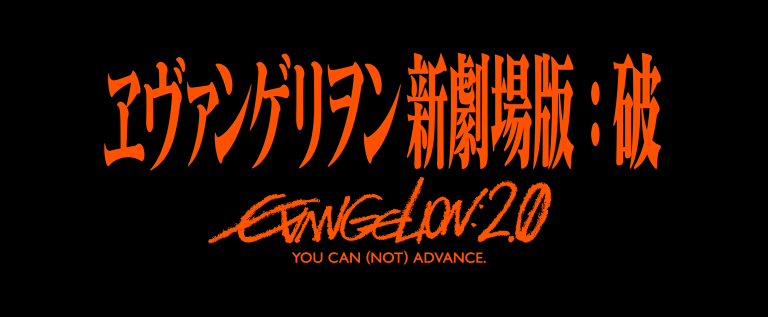
Evangelion: 2.0 You Can (Not) Advance
Alright, so, back in my review of NGE, I spent a lot of time addressing common misconceptions about the show. One misconception I addressed was of the supposed surreality of Episode 16. But while I discussed that detail, I didn’t talk about the other big misconception people have towards that episode. This is the one where they “fight” Leliel, and another one where the events of the episode don’t actually pan out like most people assume, even though I also remembered them in that way. The way that I, and most people it would seem, perceive the episode is that it’s the point where Shinji’s self-actualization progress goes awry. His confidence grows too much, he gets smacked down, and he subsequently relapses into a shell of his former self.
That’s not actually what happens though. Yes, his confidence is at perhaps its highest point in the series here. But the thing that prompts him to charge in like Leeroy Jenkins on Leliel is pestering from Asuka, whose confidence takes a serious hit when Shinji starts outpacing her in sync rates, and who goads Shinji into taking a dumb combat risk. So it’s not so much him becoming overconfident as confident enough to stand up to Asuka’s bullying.
Mind you, this still blows up in Shinji’s face, and his time inside Leliel is still traumatic. But the love and support shown by Misato, Rei, and even Asuka once he’s rescued help him recover from his ordeal, and by episode’s end he’s even able to crack a smile (though the last line, where he remarks that the smell of Leliel still hasn’t left, shows that the trauma will never fully leave him). So rather than the universe smacking Shinji down for his arrogance, a better description of the episode’s events is that Shinji faces a new trauma, but realizes that he has a support system he didn’t have before, which allows him to heal more quickly and thoroughly, while also realizing that there will still always be a mental scar. It’s a great episode, and a lot more nuanced than what most people remember it as.
So why do I bring it up here? Well, because once again, this Rebuild forgets the nuance and subtlety of its source material, and delivers a story that is not as good as a result. But this time around, the central question is whether or not things can ever really get better, or if any little piece of happiness Shinji gets will blow up in his face.
Before I rag on that though, I want to discuss what I think are the movie’s strengths. Advance is, once again, a visual feast, to the point where I was wistfully wishing to watch it on the big screen (Why couldn’t I have caught a single theatrical release of these films? “Sigh”). And it also comes with new Angels, and new variations of old Angels, which lead to each fight being truly incredible to watch. Also, this film remembers to show Shinji having everyday pleasant interactions with his friends, allowing their relationships to feel much more real and valuable. Everything at the Marine Research Organization was wonderful, and now that I’m watching it with a fuller context, I can see what the pills Rei takes and her comments on the fish tank are leading up to. Asuka is… not as rich of a character as her original counterpart was, but again, in the context of the full Rebuild series, I can see where they’re going with her, and I think she’s enjoyable enough. She’s just a different character than she was in the show, which is probably why her name was changed.
One new character I don’t like though, both initially and now, is Mari Illustrious Makinami. I realize that she’s a much-beloved character, and it’s probably quite controversial to say this, but I just never connected with her, at any point in the series. The main thing fans of Mari have told me about why they love her is that she’s so anti-Evangelion, which strikes me as an odd reason (why would you want an anti-Evangelion character… in Evangelion?), but I can see why that would be an amusing bit. Once you get that that’s the bit though, the bit is kinda done? And there’s nothing really to Mari’s character besides that bit, which leads to her feeling tacked-on and incongruous. The thing is, when I first watched Advance, I thought that maybe they were gonna do something with her later on. Eva is famous for having characters who are deeper than the initial impressions they give, right? But, uh, no. What you see with Mari here is what you get with the rest of the Rebuilds. An overly flirtatious schoolgirl who is Not Like Other Eva Pilots, and is somehow integral to the plot despite this overwhelming blandness (Shinji doesn’t even learn her name until the last film!). I’m getting off on a tangent though, so let me return to the things I don’t like about this film specifically.
As I said earlier, the first two Rebuilds are, ostensibly, trying to speedrun through the events of the original series. But in their haste to get through everything, they end up leaving out key details that make the scenes worse, and perhaps the worst offender of this is the fight with Bardiel. After no doubt having had to listen to smart alecks ask smarmily “Why didn’t Shinji just remove Unit 03’s hands from his throat?”, Anno and co. have devised a new development in the fight, where the Bardiel-possessed Eva grows another pair of arms, with which to hold Unit 01’s hands down while it continues to choke Shinji. Boy, aren’t your expectations subverted now? Bet you didn’t see that coming.
Except, while they addressed that fan nitpick, they completely forgot the whole reason that Shinji chose not to fight back in that scene. In NGE, Shinji was willing to fight Bardiel until he realized that the pilot of Unit 04 was still inside. After that, he argued that, if there was a chance the pilot was still alive, then NERV’s priority should be rescuing them, instead of eliminating the Angel and possibly killing the pilot with them. In Advance though, Shinji, knowing that Asuka is inside Unit 03, decides not to fight Bardiel, because he’d rather die and let the earth perish than kill Asuka. So the moral quandary of “eliminate the Angel” vs “save the pilot” becomes “eliminate the Angel” vs… “do nothing”.
This turns Gendo’s decision to use the dummy plug from sadistically cruel to cruel but necessary, and in Thrice Upon a Time Asuka will flat-out tell Shinji that she would have preferred he killed her than do nothing like he did, so the ambiguity of which decision was correct has also been removed. Shinji was clearly in the wrong. Gendo did the right thing by overriding Shinji’s free will and eliminating the Angel, and even without that context, what is presented in this film, including the fact that this version of the Bardiel fight doesn’t have Shinji feeling himself tear Unit 03 limb from limb (he doesn’t even know what’s going on until he hears Asuka’s scream), it makes Shinji’s actions afterwards much more petulant than they were in the source material.
In NGE, Shinji refused to pilot again after the very visceral trauma of being used to kill like Picard was used by the Borg, and he is brought back to piloting when he realizes that he has the power to save humanity from Zeruel. But in Advance Shinji still refuses to lift a finger until he directly witnesses Zeruel eat Rei, after which he goes berserk. Shinji’s heroic will to protect the earth is replaced with a codependent obsession, and his desperate, almost deranged pursuit to get Rei back nearly dooms the world. But was it worth it? Did he save her and not lose all the good things he got in life these past two movies?
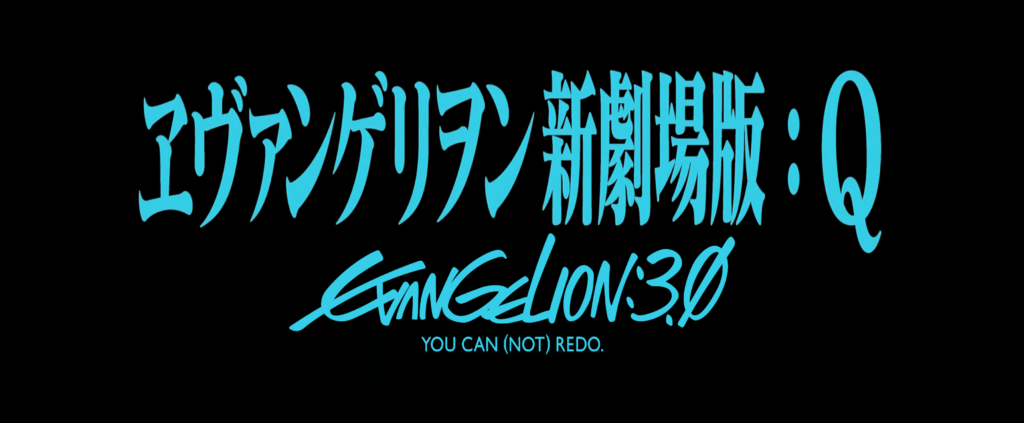
Evangelion: 3.0 You Can (Not) Redo
No.
The last two films posed their titular themes as questions, the answers to which were tentative yeses. But this film takes back all the progress Shinji made, and subjects him to even more trauma. Since I’d only recently watched this movie, it was still fresh in my mind. I didn’t like it then, partly because it felt like a filler episode (the main reason I hadn’t seen it for so long was because I’d been warned by friends of that exact issue). But the main reason for my distaste was that the plot essentially boiled down to “Shinji! How could you fail to act on information we very deliberately and quite angrily refused to give you? This is all your fault!”
Upon my rewatch, and watching it in the full context of the larger saga, I have warmed to Redo slightly. But largely this is because the scenes of quiet character interaction that I found meandering on my first viewing now seem fresh and rich after having seen the last two movies breeze past such moments. Also, I can’t really blame Wille for not telling Shinji everything anymore because the first time they try, they’re interrupted by the arrival of Unit 09, and then later when Kaworu outright tells him that they’re making a terrible mistake, Shinji refuses to listen. He’s so far gone by that point, so obsessed with turning back the clock with the two MacGuffin Spears, that Shinji shuts his ears to any warnings against his actions. And then, when it all blows up in his face and Shinji is once again reminded that these titles are statements of facts instead of questions to ponder, he’s at the point where he was in EoE, utterly catatonic with grief and self-loathing.
The main problem with talking about this film though is that there’s not really much to talk about with it. While my initial description of “filler episode” is somewhat harsh, so much of Redo’s plot and themes rely on what comes before and after it. It’s a bridge between the first two and final fourth films, and doesn’t have much to do on its own except sadistically beat down Shinji to his breaking point. The thing is, upon my rewatch, while I don’t hate Shinji like I did in EoE, I found my sympathy slowly drying up for him over the course of these three films, to the point where my attitude went from “Come on kid! Hang in there!” to “Ah, c’mon kid. What’re we doin’ here?” More than being upset over the story not progressing, I think if I’d watched Redo when it first came out, I’d have been pissed off at how sadistic and mean it feels without the context of the next film. But in that fuller context…
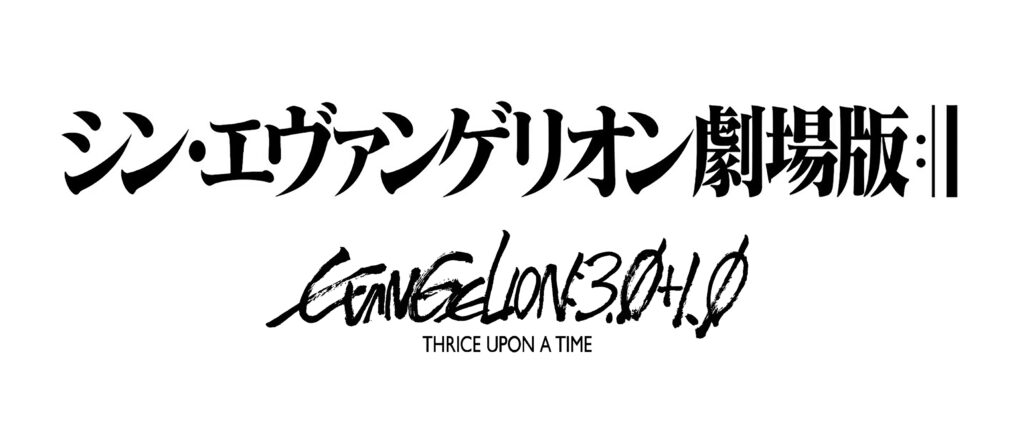
Evangelion: 3.0+1.0 Thrice Upon a Time
Given how long the gap between the third and fourth Rebuilds were (enough to justify a recap at the beginning of Thrice), you would think the final installment would feel noticeably different from what came before it. And yet, watching them all together in one sitting, I’m surprised at how cohesive they ultimately feel, especially when the film references and even shows flashbacks to events we never got to see in previous Rebuilds. Certain things that didn’t make sense to me on my first viewings make sense now that I see where it’s all leading up to, and while it doesn’t necessarily redeem the flaws of the previous entries, it does make them look better.
More than that, while Thrice Upon a Time is the conclusion of the Rebuilds, it’s also meant as a conclusion to Evangelion as a whole, Anno’s final word on the whole franchise. So as I sit here, collecting my thoughts on the film, I’m struck with a burning question. Given how poorly I think the first two Rebuilds stack up to the show, and how redundant a lot of the plot of the third Rebuild is, could you watch Thrice Upon a Time all on its own? I’m not actually sure. I suppose, given the recap and the flashbacks, it wouldn’t necessarily hurt you if you watched this all by itself. But it also wouldn’t necessarily hurt you to watch the previous Rebuilds before this. I think the only wrong choice in watching Thrice is to watch it before you watch NGE and EoE, because, as the title suggests, it’s the third, charmed time at concluding that story.
The other thing that strikes me upon my rewatch is just how little happens in the plot, given how much longer the runtime of this film is compared to its predecessors. Like, there’s never a dull moment in Thrice. Even when their plots have been subpar, the visuals of the Rebuilds have always been splendiferous. But this time, they’re really giving it their all. Some scenes do drag on a bit. The scene with Toji’s little sister and the woman with the pink hair whose name I can’t be bothered to remember is overwrought and filled with bathos. But overall the film breezes by, not feeling nearly as long as it actually is.
Also, while the story serves as a conclusion, one of the standout details of it is how it shows human life continuing after Third Impact. The post-Third Impact world shown in Redo was barren and lifeless, humanity desperately eking out a meager existence in the face of overwhelming enemies. But in the world we see here, with Toji, Kensuke, and Hikari all grown up and living in a safe village, even if life is hard and resources are scarce, everyone is still living to the fullest. Humans still cling to hope, not just in the wake of the apocalypse, but after the apocalypse has come and gone, our tenacity refusing to let us die. It’s from this, and the gentle support shown to Shinji, that he learns to live and hope again, to finally heal and move on. Shinji’s arc as a character is a lot messier and shoddier than it is in NGE, but it ends in the same result, to the point where, even when confronted with a similar situation to the violent trauma at the end of Redo, Shinji is able to grow up and step up to the plate for the final battle against Gendo.
And even this battle is not won through combat, but through compassion and communication. We’ve seen Shinji reconcile his feelings towards his father. We’ve seen Gendo realize that his single-minded focus to resurrecting Yui was misguided. But until this point, we’ve never seen the father and son confront each other head-on, and finally understand one another. When Gendo is crying out that he cannot find Yui, and he sees at last where she was all along, that is a moment that will remain as iconic as the scenes the first two Rebuilds replicated. And while EoE ended with Shinji sobbing on a beach, as Asuka hissed “disgusting”, this time around, on that same beach, Shinji is calm and at peace, and the words he exchanged with Asuka are words of comfort and love.
Perhaps the most important part of this finale though, is that it takes Redo’s answer of “no” and replaces it with an “actually, yes”. Shinji does manage to remake the world. He does manage to heal and grow into a well-adjusted adult. And when the story ends, he is not alone. He is with Mari, rather than any of the other characters who it would’ve made more sense to be with. But we know that everyone else Shinji loved is also in this new world. So who’s to say he won’t find them again?
When I first watched this film, I had such mixed feelings. It’s what compelled me to start this retrospective, after all. But upon rewatching it, after everything that has come before it, I am satisfied. When I look back on everything Evangelion, I feel like every piece of that larger tapestry was precious, even the bad parts. And even if this is the end of Anno’s Evangelion, knowing how many people Shinji’s story has touched and inspired, I know that this is not the end forever. There’s still so much more Evangelion out there. And I can’t wait to explore the rest of that larger tapestry.
Marco Cian is a third-year ALT in Hyogo. You can read more of his stuff (including this series) on his website here.
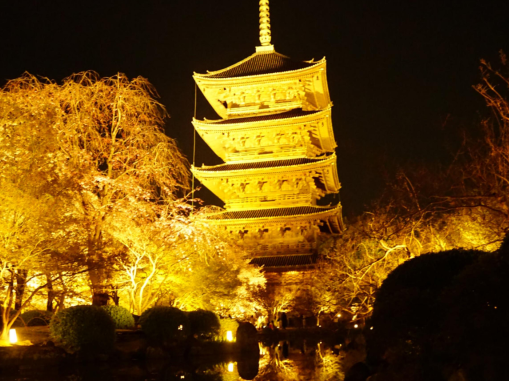
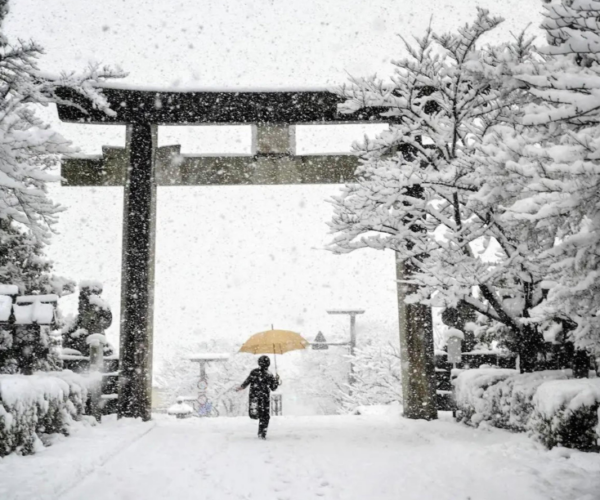


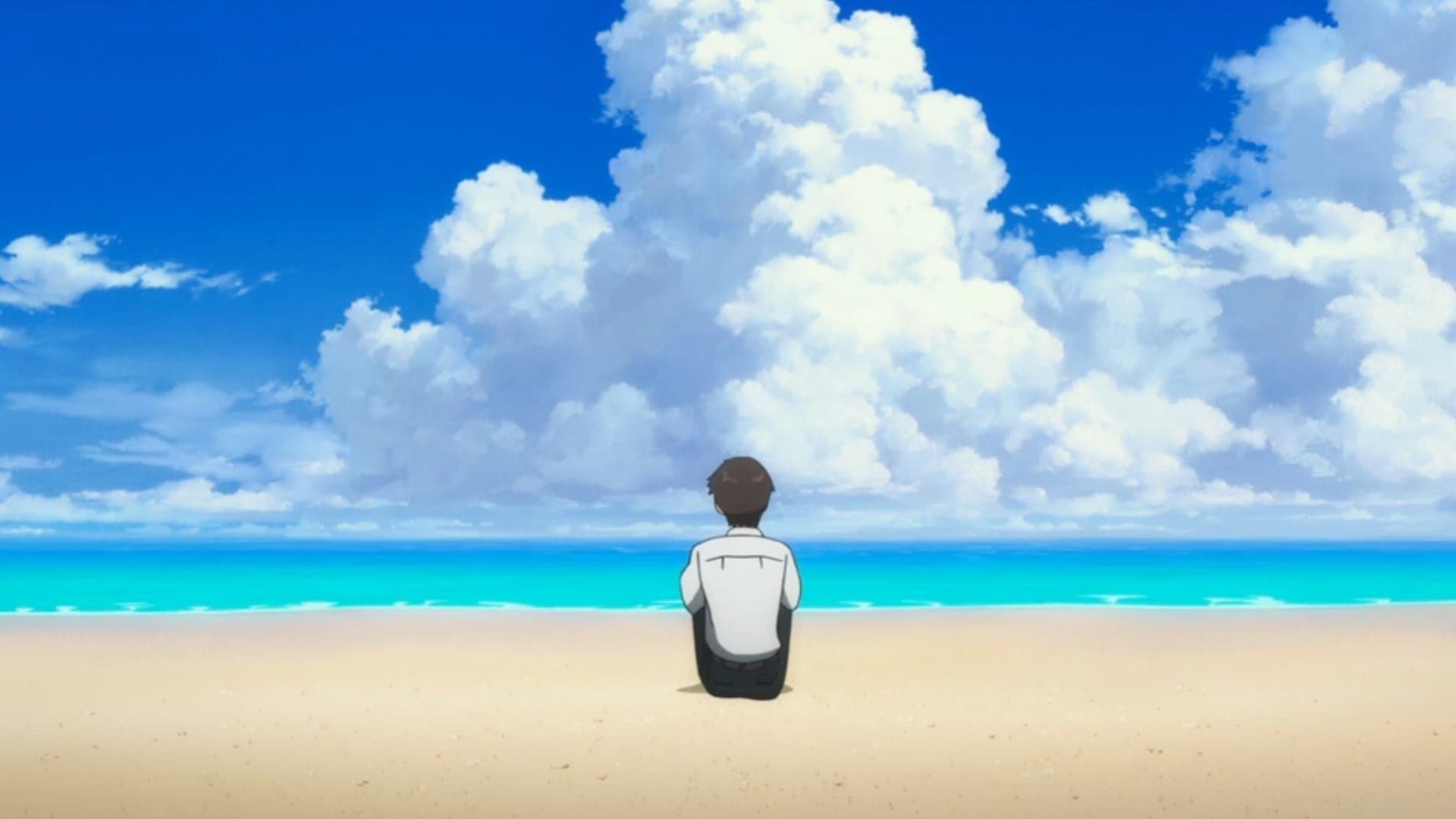
4 thoughts on “The Testament of Evangelion”
Comments are closed.